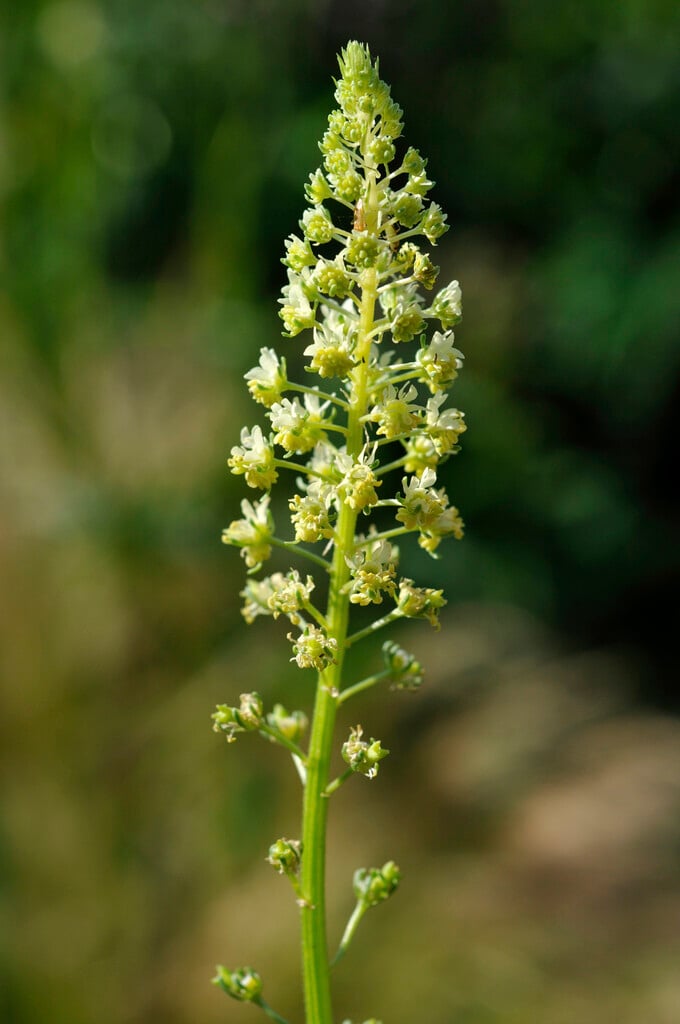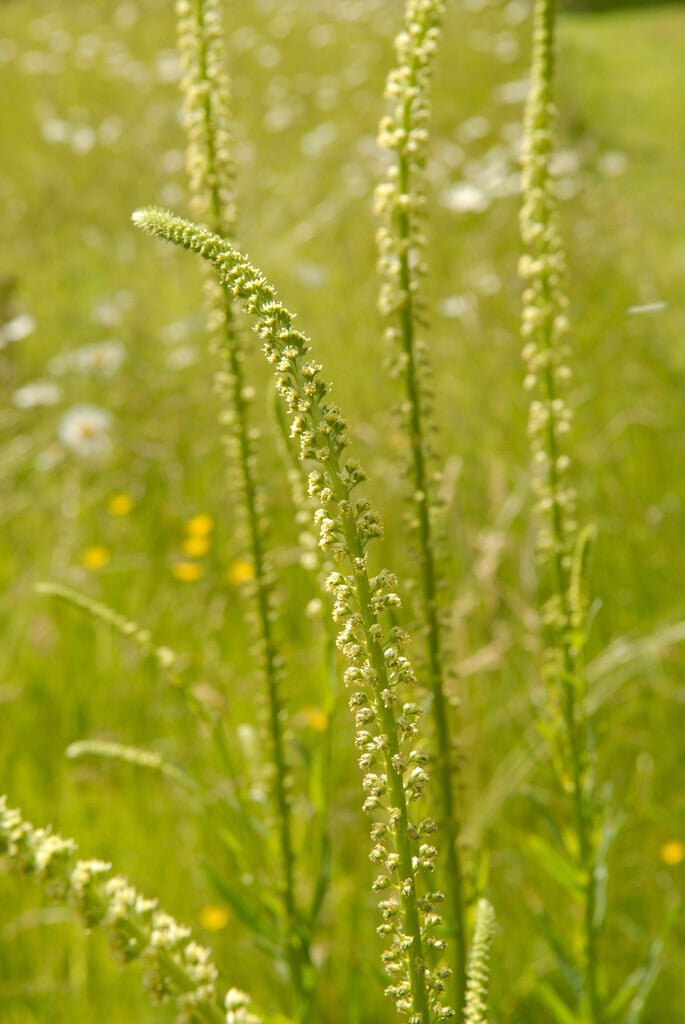Reseda luteola
weld
A tall biennial, to around 1.5m high in flower, with lance-shaped, deep green leaves often with strongly wavy edges. Slender spikes of tiny yellow flowers are produced in summer. This plant can be used to produce a yellow dye
Other common names
Dutch pinkdyer's rocket
see moredyer's weld
dyer's yellow weed
weld
wild mignonette
wild woad
yellow weed
dyer's weed
Jerusalem ash
Size
Ultimate height
1–1.5 metresTime to ultimate height
1–2 yearsUltimate spread
0.1–0.5 metresGrowing conditions
Moisture
Well–drainedpH
Neutral, AlkalineColour & scent
| Stem | Flower | Foliage | Fruit | |
| Spring | Green | |||
|---|---|---|---|---|
| Summer | Yellow | Green | ||
| Autumn | Green | |||
| Winter | Green |
Position
- Full sun
- Partial shade
Aspect
East–facing or South–facing or West–facing
Exposure
Sheltered Hardiness
H6Botanical details
- Family
- Resedaceae
- Native to GB / Ireland
- Yes
- Foliage
- Semi evergreen
- Habit
- Columnar upright
- Genus
Reseda can be annuals or perennials, with simple or pinnately lobed leaves and small, star-shaped flowers in dense racemes in summer and autumn
- Name status
Correct
How to grow
Cultivation
Grow in well-drained, preferably alkaline soil in full sun or part shade
Propagation
Propagate by seed, sown in situ in autumn for flowers the following summer. Do not cover, seeds need light to germinate. In colder areas, seedlings may need to be protected with a cloche over winter. Plants will self-seed in place; transplant with care as they dislike root disturbance
Suggested planting locations and garden types
- Cottage and informal garden
- Gravel garden
- Wildflower meadow
- Flower borders and beds
- Wall side borders
Pruning
Deadhead if seeds are not required
Pests
Generally pest-free
Diseases
Generally disease-free
Love gardening
Sign up to receive regular gardening tips, inspiration, offers and more
View our Privacy Policy
Get involved
The Royal Horticultural Society is the UK’s leading gardening charity. We aim to enrich everyone’s life through plants, and make the UK a greener and more beautiful place.

